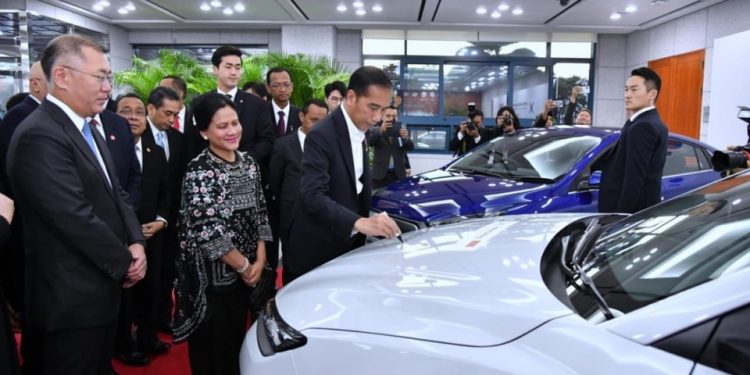Agencies-Gaza post
The Hyundai Motor Group opened a new automotive plant on Wednesday in Indonesia that will create the country’s first locally assembled electric vehicle, as part of President Joko Widodo’s objective to develop a whole EV supply chain that makes use of the country’s mineral resources.
Jokowi, as the president is called, said the government was providing incentives and removing red tape to attempt to increase investment in EV development at the plant’s inauguration on Wednesday.
“We need to be a major role in the global electric vehicle supply chain,” he stated.
“Our country has abundant mineral resources that might be exploited to produce electric vehicles.”
Indonesia is a large producer of nickel ore, which is a key component of electric vehicle batteries. It also produces cobalt, which is used in batteries and has vast amounts of bauxite and copper ores, both of which can be used in the construction of electric vehicles, according to Jokowi.
One of Jokowi’s main economic aims has been to develop Indonesia’s natural resources downstream in order to attract foreign investment and create jobs.
He stated that by 2024, all EVs produced in Indonesia will employ locally manufactured batteries and other critical components.
Hyundai (005380. KS) announced in 2019 that it would invest $1.55 billion between now and 2030, with a capacity of 150,000 automobiles per year initially, with a capacity of 250,000 vehicles per year thereafter.
The new plant will be linked to a Hyundai-LG (003550. KS) joint venture battery plant, which is set to operate in 2024, according to the group’s chairman, Euisin Chung. In September, LG Energy Solution (LGES) and Hyundai began work on the $1.1 billion EV battery factory, which is scheduled to produce 10-gigawatt hours of battery cell electricity at full capacity.

















